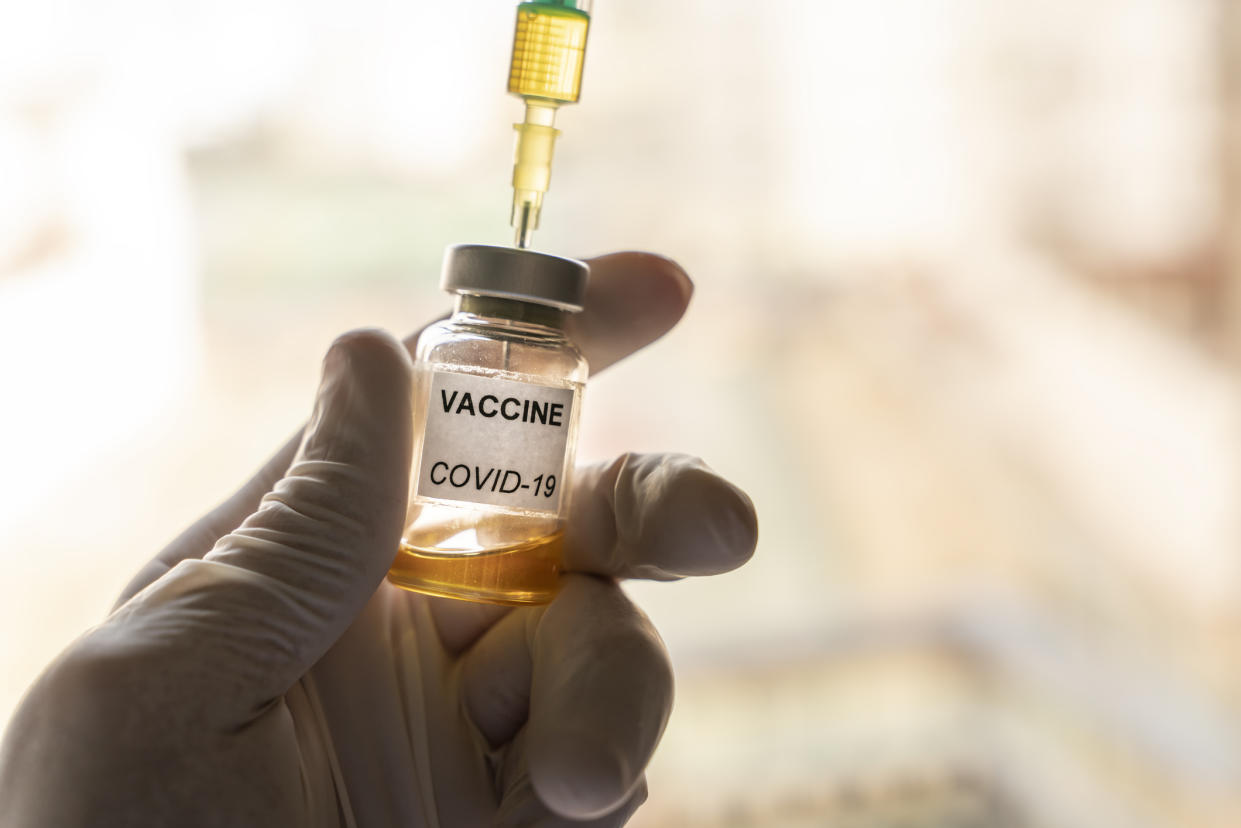Meet the TikTok scientists making vaccines to save the world from COVID

A group of scientists is using TikTok to try to reassure people about the safety of new COVID-19 vaccines.
The group, Team Halo, is made up of clinicians and researchers from institutes across the world, and aims to educate and build confidence in the potential vaccines, which are hoped to hold the key for a return to normal life.
The initiative, which involves 21 scientists, known as Guides, volunteering to post videos on social media, was established in collaboration with the United Nations Verified initiative and the Vaccine Confidence Project at the London School of Hygiene and Tropical Medicine.
Through a series of videos shared to the video-sharing platform, including a joyful ode to Dolly Parton, the team hope to help educate the public, particularly young people, about international vaccine efforts.
Read more: Oxford's coronavirus vaccine is safe and produces immune response among elderly
Dr Anna Blakney, a research fellow at Imperial College London (ICL), has gained more than 185,000 followers through her vaccine-themed TikToks.
After news earlier this week of a promising Moderna vaccine partly funded by Dolly Parton, Dr Blakney recorded her own version of the hit 9 to 5 in tribute to the star.
Read more: Pandemic anxiety leading to rise in jaw-clenching
The video clip shows Dr Blakney, 30, singing alternative lyrics to the 1980s track, in a bid to help explain her work on the university’s vaccine.
“TikTok is all about inspiring creativity and bringing joy, and it’s fun to make some of my videos humorous,” she explains.
“My general approach is that people come for the entertainment but stay for the science.”
In another video, Dr Blakney explains some vaccination terms, using simple language we can all understand.
Her posts often refer to memes or popular music to encourage the app’s younger audience to engage, but she also spends a lot of time responding to queries from users.
“I get a lot of questions and the occasional troll but I am grateful to have the opportunity to explain our work to people who are curious and want to know more in a transparent way,” she explains.
Watch: Fauci addresses concerns about speed of vaccine development.
Colleague Dr Paul McKay, 50, has been making TikToks for around a month as part of the project and hopes to dispel some of the myths surrounding vaccines that are often shared online.
“A heck of a lot of the vaccine hesitancy issues are talked about and reinforced and self-reinforced on social media,” he explains.
Read more: Mass coronavirus testing 'will fail miserably', experts warn
Follow the scientists working round the clock (and round the world) to help end this pandemic. They’re filming on their phones inside the search for safe and effective vaccines. #teamhalo pic.twitter.com/rS3IkumoQR
— Team Halo (@projecthalo) October 20, 2020
Dr McKay, senior fellow at the university’s department of infectious diseases, says some of the biggest worries he has encountered from the public include concerns that the COVID-19 vaccines are being rushed, or that they include toxic ingredients.
“Team Halo is about helping everyone understand the science behind what we do,” he told PA News Agency.
“Many people remain hesitant for various reasons but I want to reassure them that there have been no shortcuts in our process and explain that safe and effective vaccines are key to helping us end this pandemic.
Does an effective vaccine mean that life will soon go back to normal? How soon? When might a vaccine start to have an impact? Very early days but great news that there current seem to be vaccines which are highly effective - in the short term at least! @projecthalo pic.twitter.com/pr4wyxxGFS
— Paul McKay (@PaulFMcKay) November 20, 2020
“There’s lots of misconceptions… we can only give people the information, we can’t make them change their minds.”
He added: “TikToks are not aimed at or made by people like me. They think that people are old if they’re 28 – so it was about trying to reach that particular demographic.”
Additional reporting PA.



